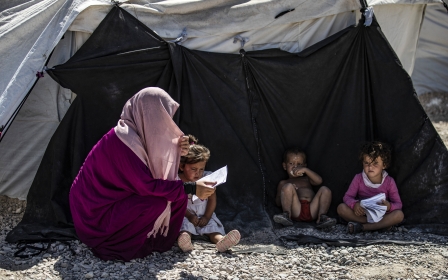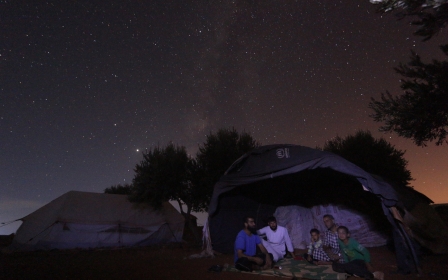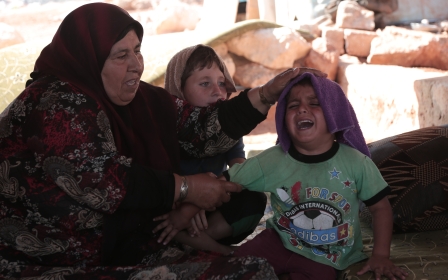In pictures: Internally displaced Syrians add touch of beauty to harsh camp life
Like millions of other Syrians, the families of Hurriya and Shamsa al-Musa have been internally displaced by the war that has raged in the country for nearly a decade.
In December 2015, Huria, also known as Umm Walid, her husband Mustafa and their children were forced to move from their village of Tal al-Hattabat in the southern countryside of Aleppo to an unofficial camp, called Airport Road, built between the cities of Salqin and Harim in the northern province of Idlib.
Shamsa, who goes by Umm Muhanna, and her family meanwhile fled the Aleppo area village of Barada at around the same time.
Despite the struggle of living in difficult conditions for almost five years, the two women have tried to make the best out of a bad situation and turn their homes into safe havens to ease the pressures of everyday life. (MEE/Ali Haj Suleiman)
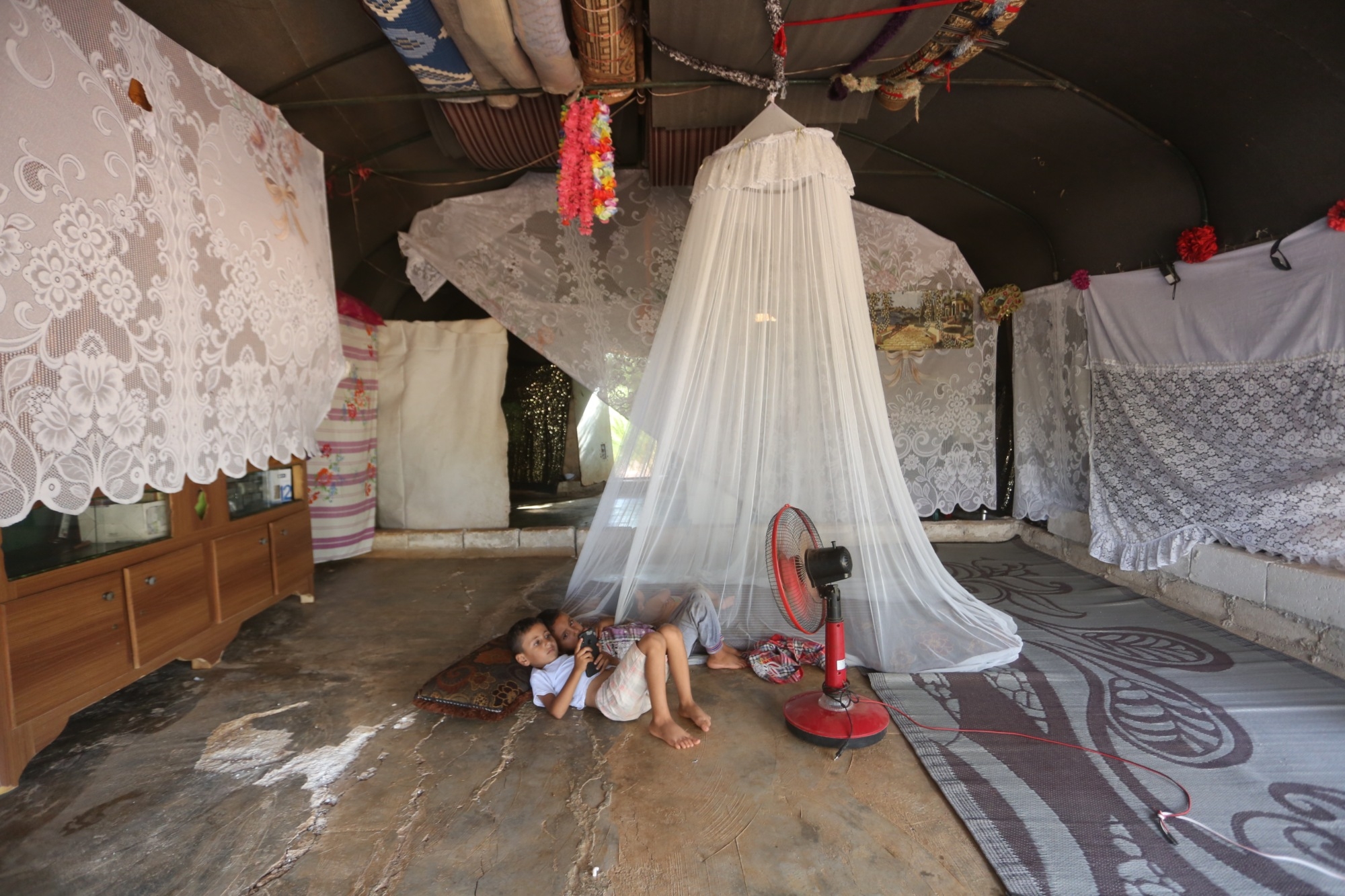
While living in faded tents, Umm Walid and Umm Muhanna have grown extensive gardens of greenery and flowers around their homes, and decorated their interiors with embroideries.
"Because of the displacement, we went through very difficult conditions, the likes of which no one has experienced, so we have tried to do something that improves our psychological state," Umm Walid, told Middle East Eye. (MEE/Ali Haj Suleiman)
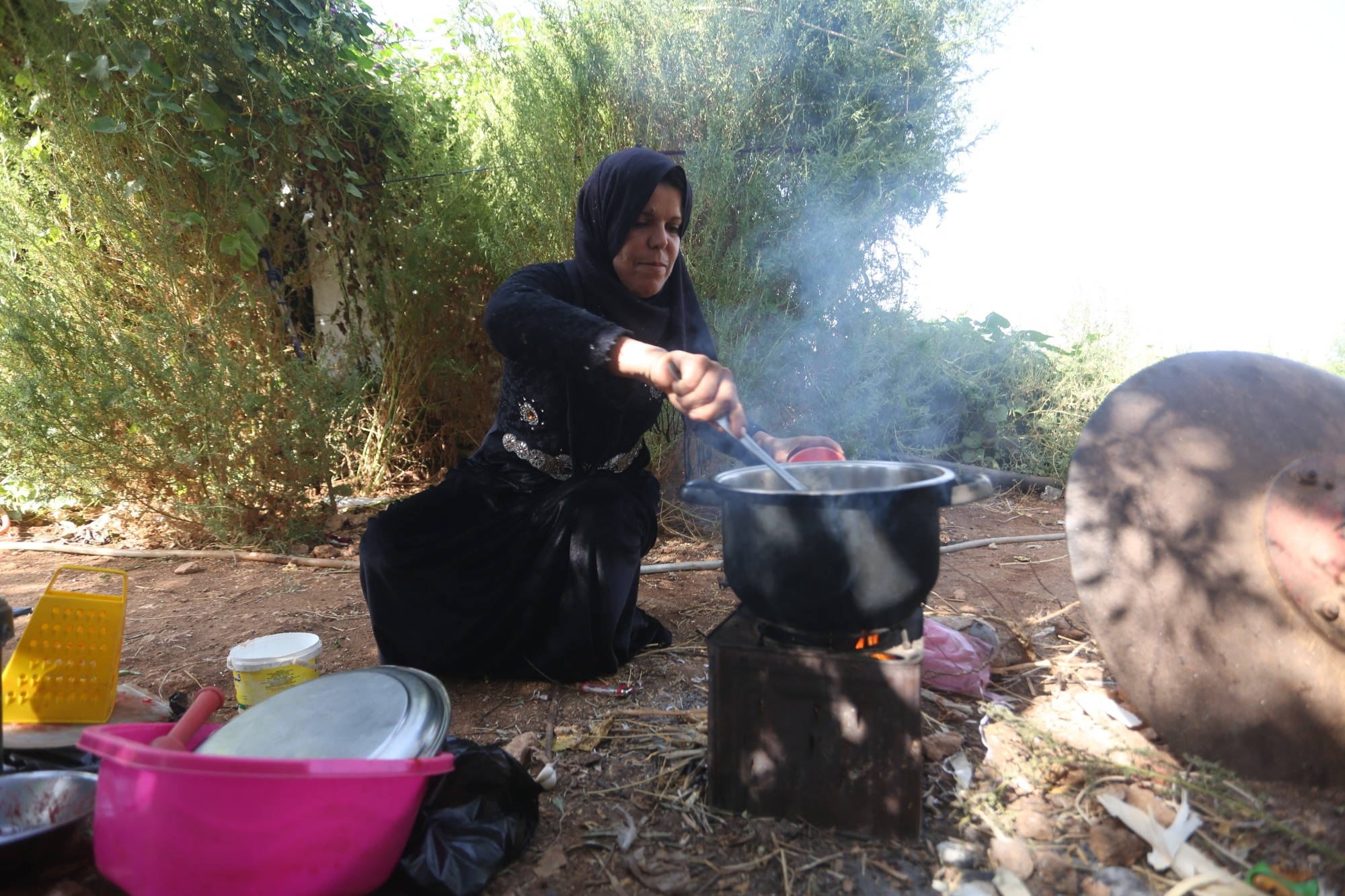
Umm Walid, pictured here, works with her husband selling clothes from a modest cart in small popular markets.
When she isn't working, she takes great care in tending her garden and home, making sure their simple shelter remains spotless.
"My husband greatly admires my idea and work," she said. "He helps me look after the flowers and trees, and my four children are very happy with this whole situation.
"We have planted various flowers not only to show an aesthetic view of the tent and add a good scent that indicates cleanliness and attention, but also to alleviate the summer heat, as [plants] yield moisture," she said, adding that she cares for 35 types of plants.
The Syrian woman says she and Umm Muhanna have transformed their camp from one that reeked of despair to one that shows the real character of Syrians, despite their misfortunes. (MEE/Ali Haj Suleiman)
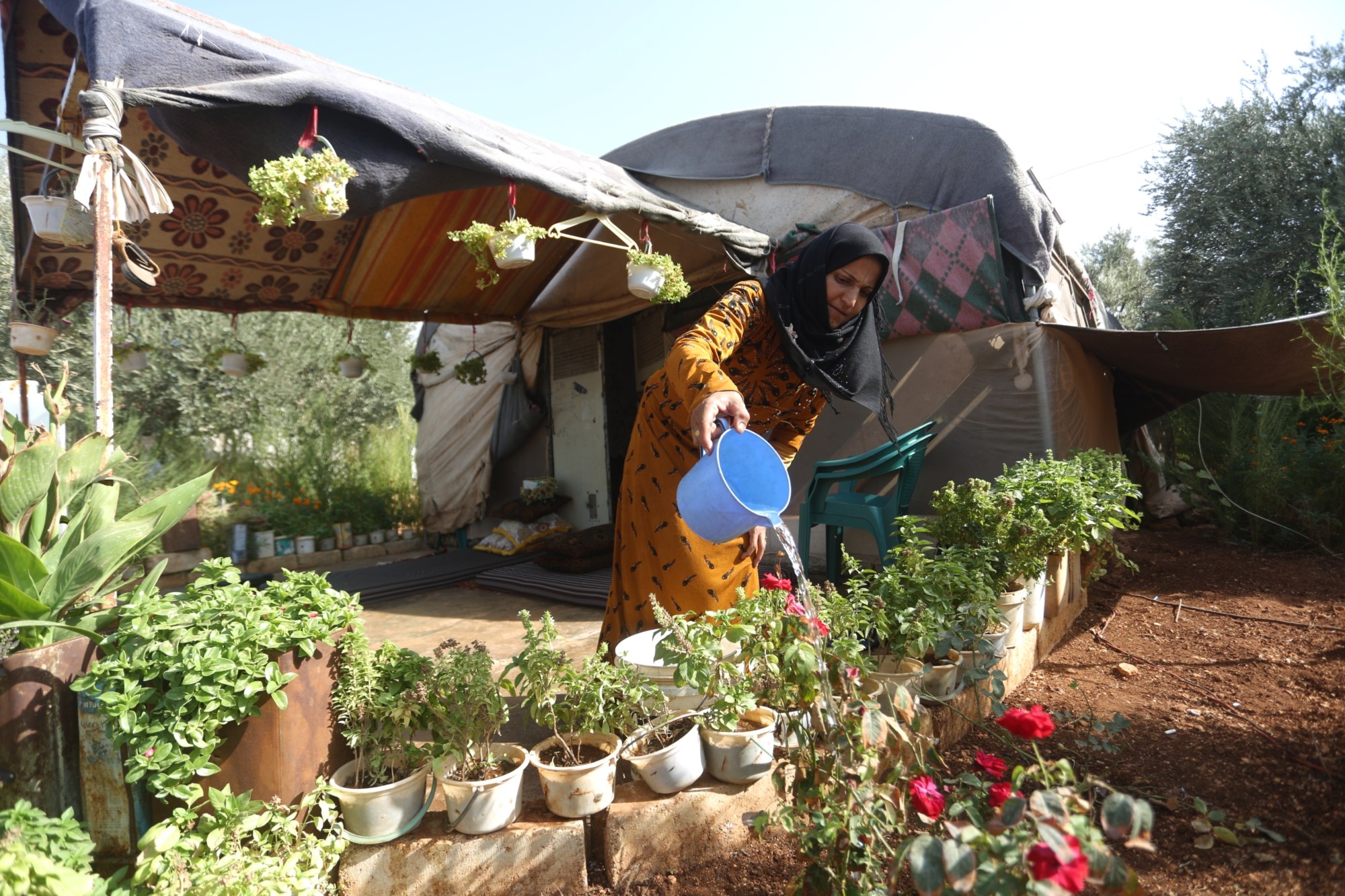
Umm Muhanna, pictured here, had been planting flowers long before her family was forced to leave their home, and has taken her skills with her into displacement.
"We worked on planting around the tent to give it a beautiful and natural view," she said.
Her husband, Mubarak, a volunteer in the Syrian Civil Defence also known as the White Helmets, said his wife's idea has made him very happy and she has improved his morale.
"The roses and flowers give hope and optimism and relax the heart, especially in this place and its bitter, painful conditions," Mubarak said. (MEE/Ali Haj Suleiman)
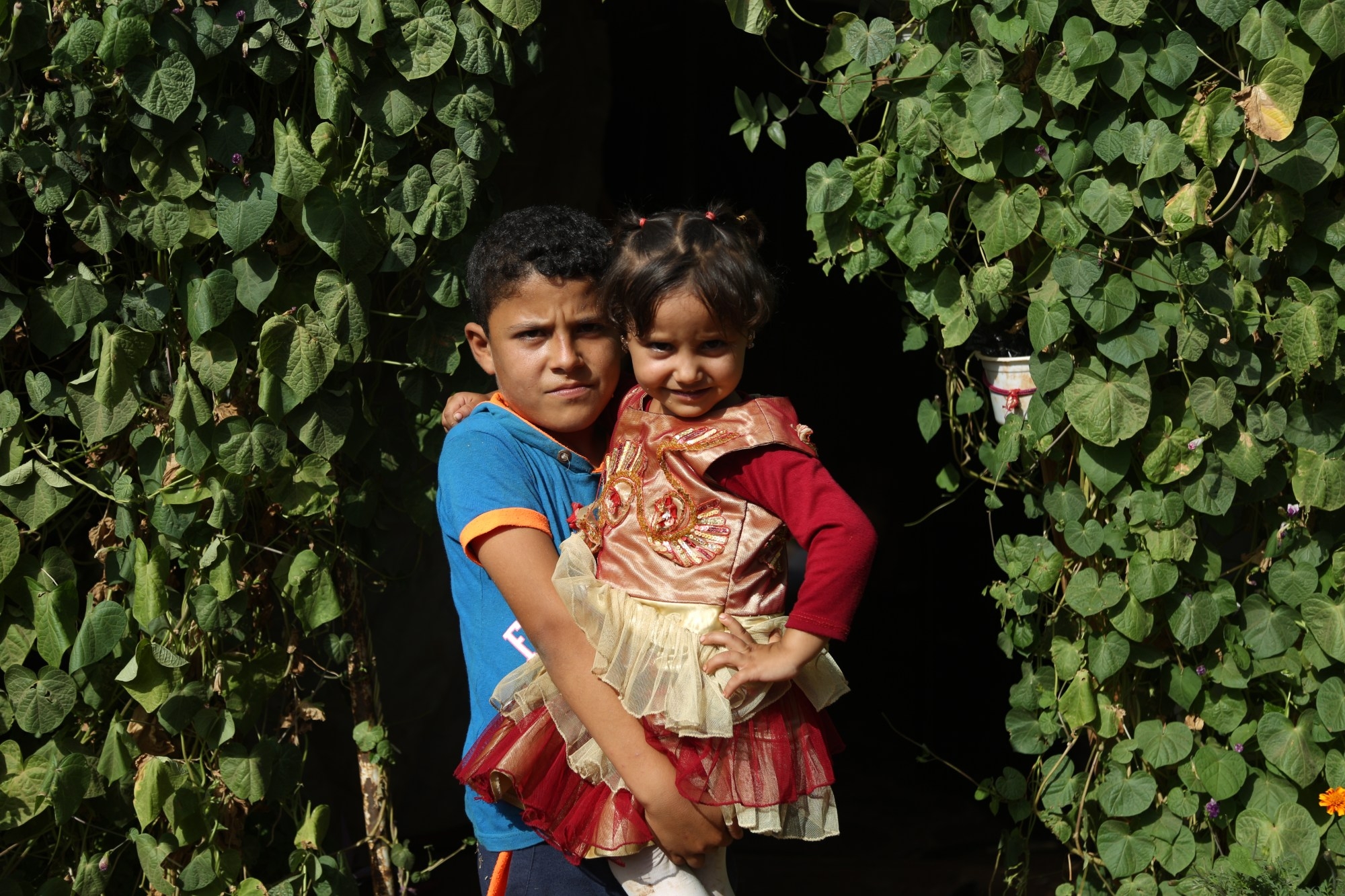
Umm Walid wishes her family could return to the home they were forced to abandon, or at least have a solid house where they can build a future in a better state of mind, away from tragedies and the state of impermanence of living in tents.
But while the future is uncertain, Umm Muhanna said that by planting flowers and shrubs the two women hope to bring some psychological relief for themselves and their children.
"The flowers give us hope during this period of our lives," she said. (MEE/Ali Haj Suleiman)
Middle East Eye propose une couverture et une analyse indépendantes et incomparables du Moyen-Orient, de l’Afrique du Nord et d’autres régions du monde. Pour en savoir plus sur la reprise de ce contenu et les frais qui s’appliquent, veuillez remplir ce formulaire [en anglais]. Pour en savoir plus sur MEE, cliquez ici [en anglais].


